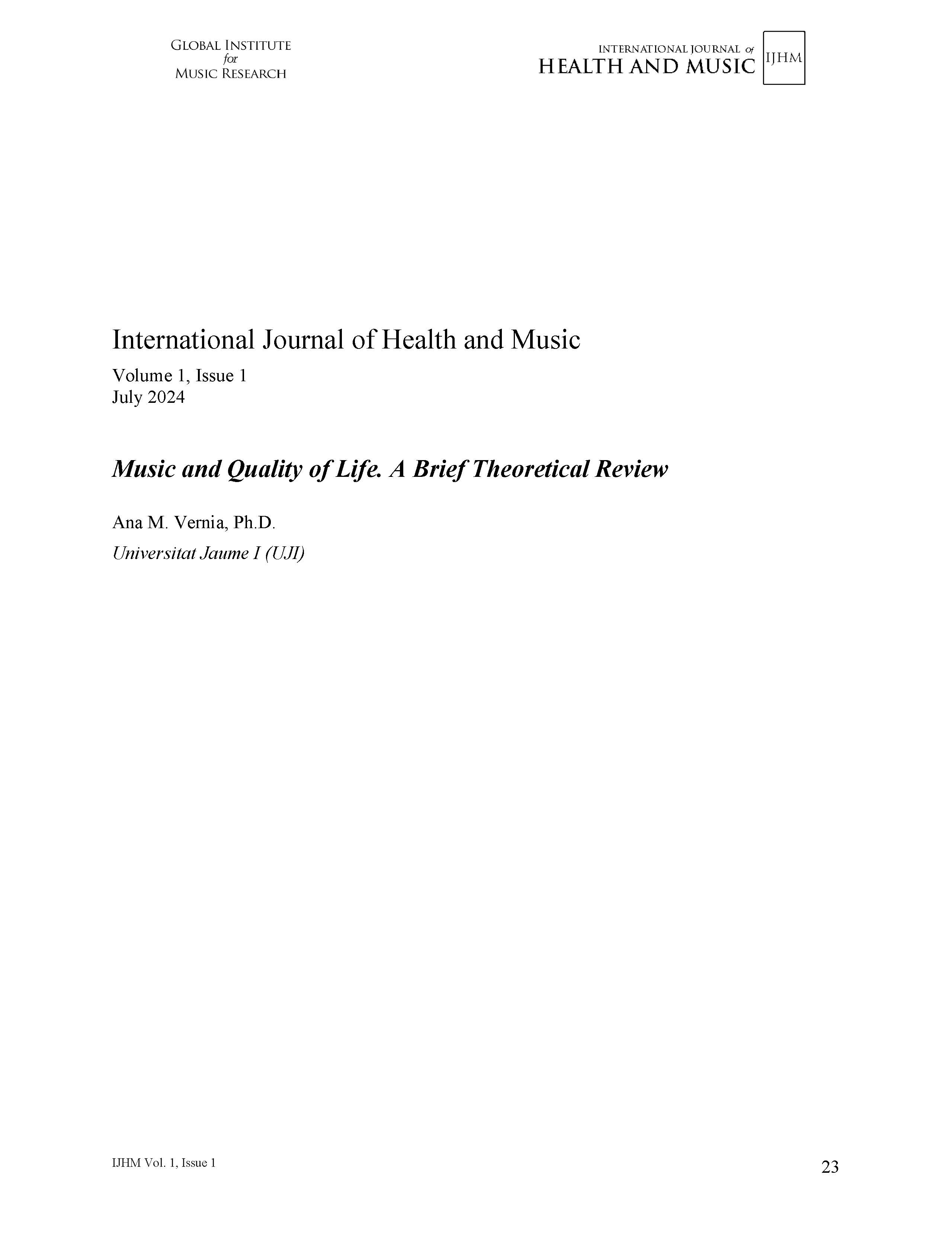Music and Quaility of Life
A Brief Theoretical Review
DOI:
https://doi.org/10.61629/ijhm.v1i1.41Keywords:
COVID pandemic, elderly therapies, music therapies, elderly wellbeingAbstract
This paper explores the role of music in mitigating the negative effects of the pandemic on older adults. The findings indicate that music has a positive impact on older adults, alleviating anxiety, improving quality of life, and enhancing social connections. However, the pandemic exacerbated the digital divide among older adults, limiting their access to virtual music experiences and aggravating social isolation. Practical music activities tailored for older adults, incorporating traditional and digital approaches, are proposed. Key recommendations include developing accessible musical activities, bridging the digital gap, and advocating for policies that support music-based interventions. The paper concludes that music can be a powerful tool for promoting the well-being of older adults.
References
Coulton S, Clift S, Skingley A, Rodriguez J. (2015). Effectiveness and cost-effectiveness of community singing on mental health-related quality of life of older people: randomized controlled trial. Br J Psychiatry. Sep;207(3):250-5. doi : 10.1192/bjp.bp.113.129908. Epub Jun 18. PMID: 26089304.
Granados Hernández, M., & Muñoz Rojas, D. (2015). Factors that affect the quality of life of older adults. Current Nursing of Costa Rica , (29), 92-107.
Hsin Chu, Chyn-Yng Yang, Yu Lin, Keng -Liang Ou , Tso-Ying Lee, Anthony Paul O'Brien & Kuei -Ru Chou, (2014). The Impact of Group Music Therapy on Depression and Cognition in Elderly Persons With Dementia: A Randomized Controlled Study. Biological Research For Nursing, 16 (2), 209-217. doi : 10.1177/1099800413485410
Huei-chuan , S., Wen-li, L., Tzai -li, L. & Watson, R. (2011). A group music intervention using percussion instruments with familiar music to reduce anxiety and agitation of institutionalized older adults with dementia. Geriatric Psychiatry, 27(6), 621-627. doi : 10.1002/gps.2761
Jenkins, A. (2011) Participation in learning and wellbeing among older adults, International Journal of Lifelong Education, 30(3), 403-420. doi : 1 Kemper, KJ, & Danhauer , SC (2005). Music as therapy. South Med Journal, 98(3), 282-8. https://pubmed.ncbi.nlm.nih.gov/15813154/0.1080/02601370.2011.570876
Leal, MEJ (2011). Music for adults International Journal of Developmental and Educational Psychology , 4 (1), 187-195.
Morandeira , L.T. (2018). Music, education and new technologies: pedagogical foundations of the relationship. Education "by" music in university adult training through ICT. Redipe Bulletin Magazine , 7 (7), 39-77
Raglio A, Attardo L, Gontero G, Rollino S, Groppo E, & Granieri E. (2015). Effects of music and music therapy on mood in neurological patients. World J Psychiatry, 5(1). 68-78. doi : 10.5498/ wjp.v 5.i1.68
Vernia-Carrasco, AM (2021). Music and technology against Covid-19: a case in the elderly. Prisma Social Magazine , (32), 244-261.
Wong, E. (2021). "It's the Way You Sing It": Translating Music Therapy for Isolated Older Adults Affected by Covid-19 to the Television Screen.

Downloads
Published
Issue
Section
License
Copyright (c) 2024 International Journal of Health and Music

This work is licensed under a Creative Commons Attribution-NonCommercial-NoDerivatives 4.0 International License.




